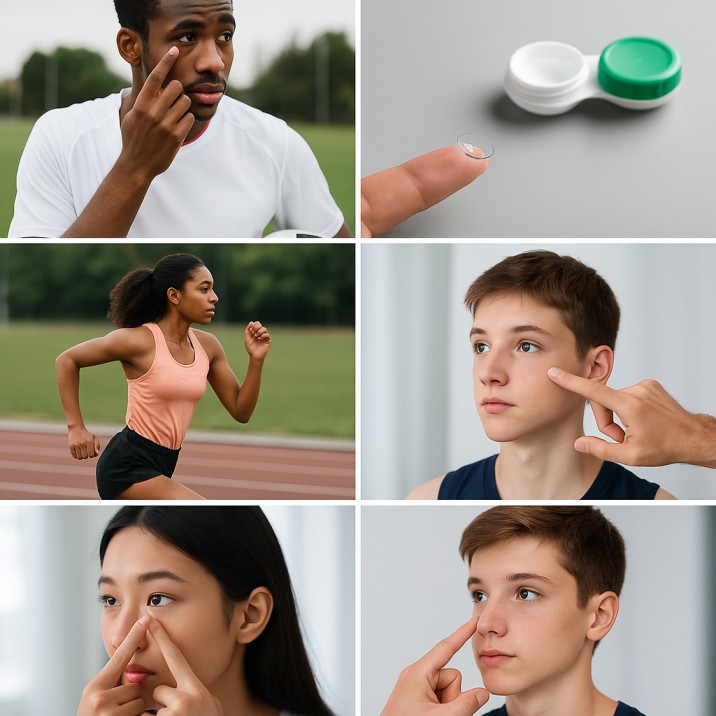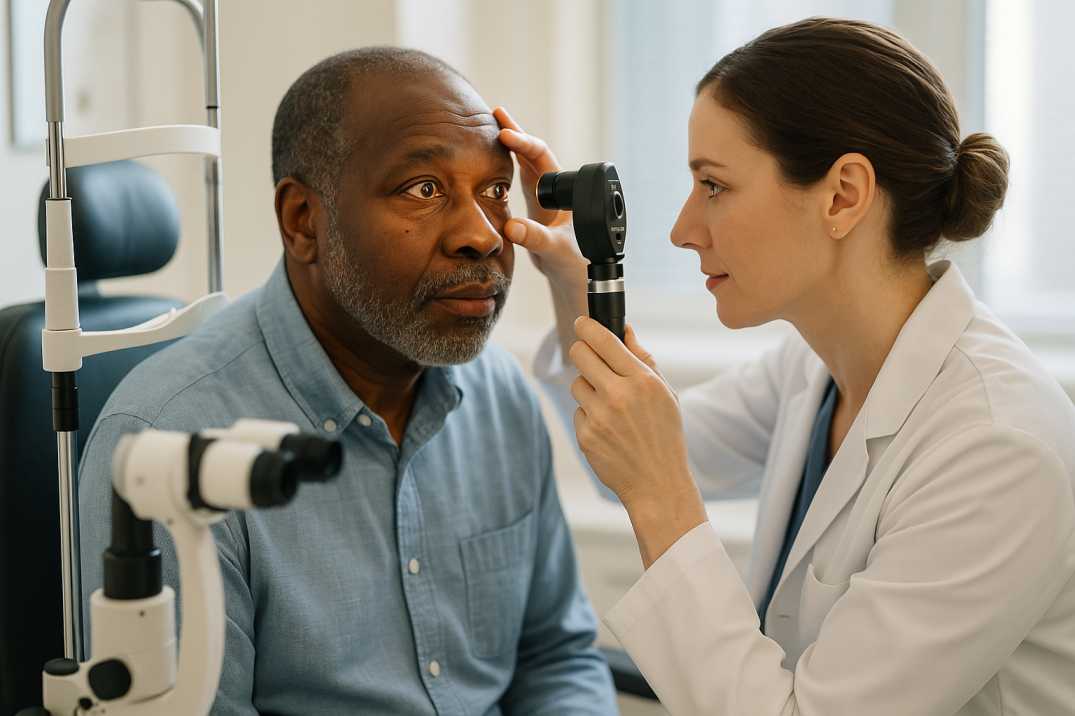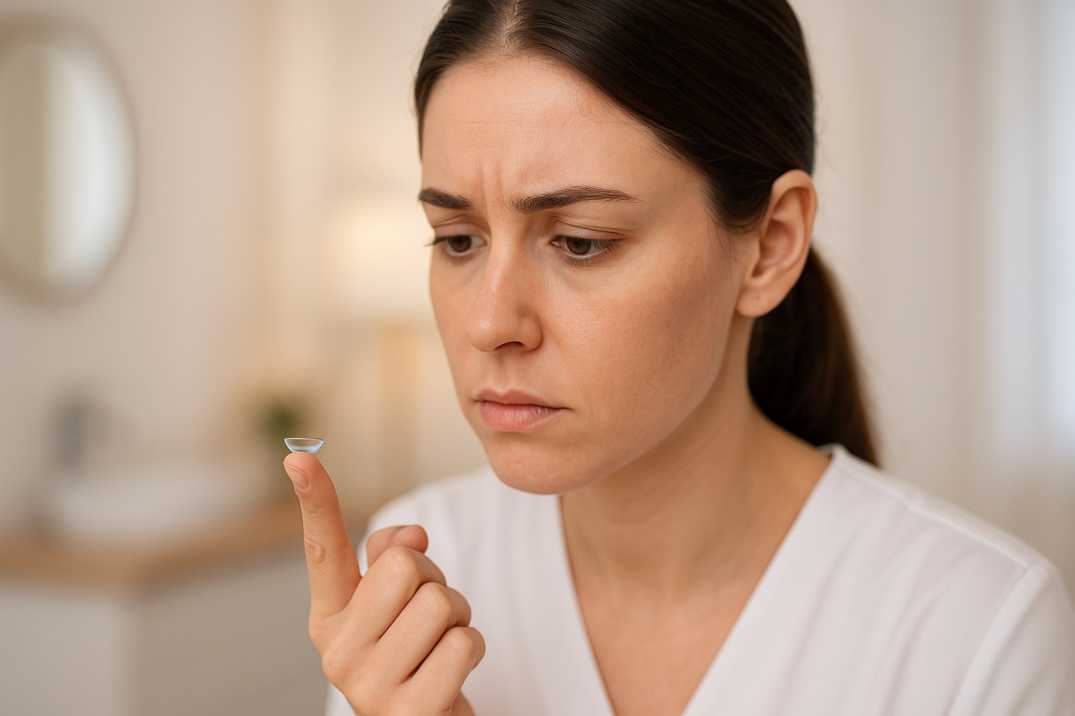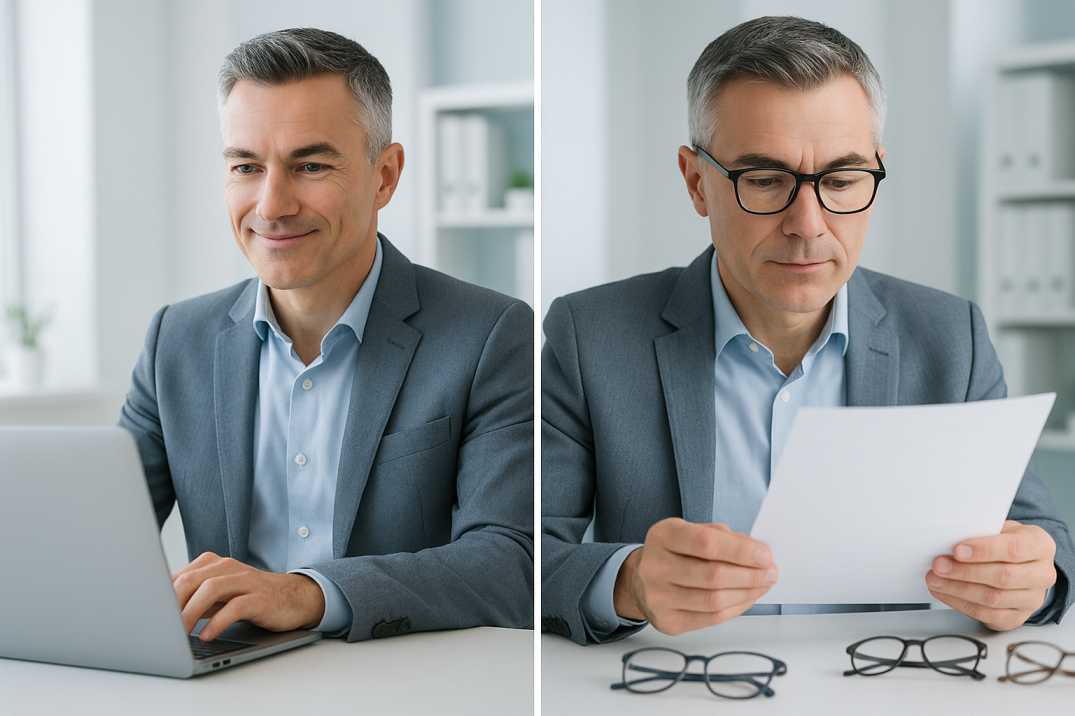Why Teen Athletes Choose Contact Lenses for Sports Performance
Are you wondering if contact lenses could boost your teenager’s athletic performance? At eye care clinics across Seattle and nationwide, over 60% of parents seeking contact lenses for their teens cite sports as the primary reason. Whether your teen athlete has mild vision issues or wants to optimize their already decent eyesight, sports contact lenses can be a game-changer for performance.
This comprehensive guide helps parents and student athletes in Washington determine if contact lenses are right for their specific sports and visual needs.
Too many teenage athletes either avoid sports entirely or struggle with glasses during competition. As optometrists who are also active athletes—Dr. Mark Cannon has completed multiple half marathons and continues competitive cycling in Seattle—we understand firsthand how vision correction impacts athletic performance. Every student athlete deserves the opportunity to excel in their chosen sport without visual limitations.
Long-Term Benefits of Youth Sports Participation
Regular exercise provides numerous health benefits, but recent research reveals something crucial: teenagers who develop a passion for fitness are 70% more likely to maintain active, healthy lifestyles throughout adulthood. When vision problems prevent teens from fully engaging in sports, they miss these life-changing opportunities for physical and mental development.
Who Should Consider Contact Lenses?
The ideal contact lens candidate is someone who needs glasses daily but prefers not to wear them. This applies to millions of Americans, though not everyone experiences significant vision issues. Many people function with mild blurriness in their distance or near vision, but for student athletes, even minor visual impairment can impact performance significantly.
Vision Standards Vary by Activity
While some individuals are satisfied meeting basic vision requirements like driver’s license tests, others require precision vision for demanding careers. Seattle’s tech professionals and medical practitioners need optimal visual acuity, just as student athletes require clear, unobstructed vision for peak sports performance.
How Contact Lenses Enhance Athletic Performance
Sports vision correction directly correlates with improved athletic performance. While prescription sports goggles exist, they often limit peripheral vision and can slip during intense activity. Contact lenses provide:
- Unrestricted field of vision for better spatial awareness
- No fogging or weather interference during outdoor sports
- Enhanced confidence without worrying about broken glasses
- Optimal correction regardless of prescription strength
At our Seattle practice, the majority of teenage contact lens wearers use them exclusively for sports activities.
Specialized Vision Standards for Student Athletes
Eye care professionals apply different vision correction standards when evaluating athletes. Even minor refractive errors—less than one diopter of nearsightedness, astigmatism, or farsightedness—can significantly impact athletic performance. While non-athletes might tolerate this slight blur, competitive sports demand visual precision that only optimal correction can provide.
Contact Lens Usage Patterns for Teens
While many teenagers use contact lenses exclusively for sports, others benefit from all-day wear, particularly middle and high school students with moderate to severe nearsightedness. Contact lenses often provide:
- Clearer peripheral vision than glasses
- Better visual quality for students with higher prescriptions
- Improved self-confidence in social and academic settings
Medical Conditions That Benefit from Contact Lenses
Anisometropia—significant prescription differences between eyes—makes glasses particularly challenging for teenagers. Contact lenses provide better visual balance and comfort for these conditions. Beyond sports performance and aesthetics, medical necessity often drives teenage contact lens prescriptions, including:
- Significant prescription differences between eyes
- High degrees of astigmatism
- Strong prescriptions that cause image distortion in glasses
Critical Safety Guidelines for Teen Contact Lens Wearers
Contact lens safety is paramount for teenage users. Over-wearing lenses—including sleeping in contacts not designed for overnight use—can lead to serious eye infections and complications. Follow these essential safety practices:
- Remove lenses 2-3 hours before bedtime daily
- Never sleep in daily disposable lenses
- Replace lenses according to schedule (daily, weekly, or monthly)
- Maintain proper hygiene with clean hands and fresh solution
- See your eye doctor immediately if you experience redness, pain, or vision changes
Teenage athletes in Seattle and nationwide can safely enjoy contact lenses by following proper care protocols.
Ready to Enhance Your Teen’s Athletic Performance?
If you believe contact lenses could improve your teenager’s sports performance and overall quality of life, you’re likely correct. Contact lenses have transformed the athletic experiences of countless student athletes across Washington and beyond.
Next Steps:
- Discuss contact lens options with your teenager
- Schedule a comprehensive eye exam with a qualified optometrist
- Consider a contact lens fitting specifically for sports activities
Contact lenses can be the game-changing advantage your teen athlete needs to reach their full potential.
About the Author: Dr. Mark Cannon is a licensed optometrist at Cannon EyeCare (Market Optical) in Seattle, Washington. As both a vision care professional and active athlete, Dr. Cannon specializes in sports vision correction for teenage athletes throughout the Pacific Northwest. He has completed multiple half marathons and continues competitive cycling, giving him unique insight into the vision needs of active individuals.
FAQ: Athletes Choose Contact Lenses for Sports Performance
-
Why do athletes prefer contact lenses over glasses for sports?
Athletes choose contacts for a wider field of vision, better peripheral sight, and because lenses stay in place during movement, reducing risk and distraction compared to glasses
-
How do contact lenses improve sports performance?
-
What sports benefit most from wearing contact lenses?
-
Are contact lenses safe to wear during contact sports?
-
How can I prevent my contact lenses from drying out while playing sports?
-
Can I use contact lenses for water sports or swimming?
-
What should I do if my contact lenses bother me during a game?
-
Do contact lenses help with hand-eye coordination in sports?
-
What are the disadvantages of wearing contact lenses for sports?
-
How do I choose the best contact lenses for sports?
-
Do contact lenses work well with sports goggles or helmets?
-
Are there special contact lenses just for athletes?




